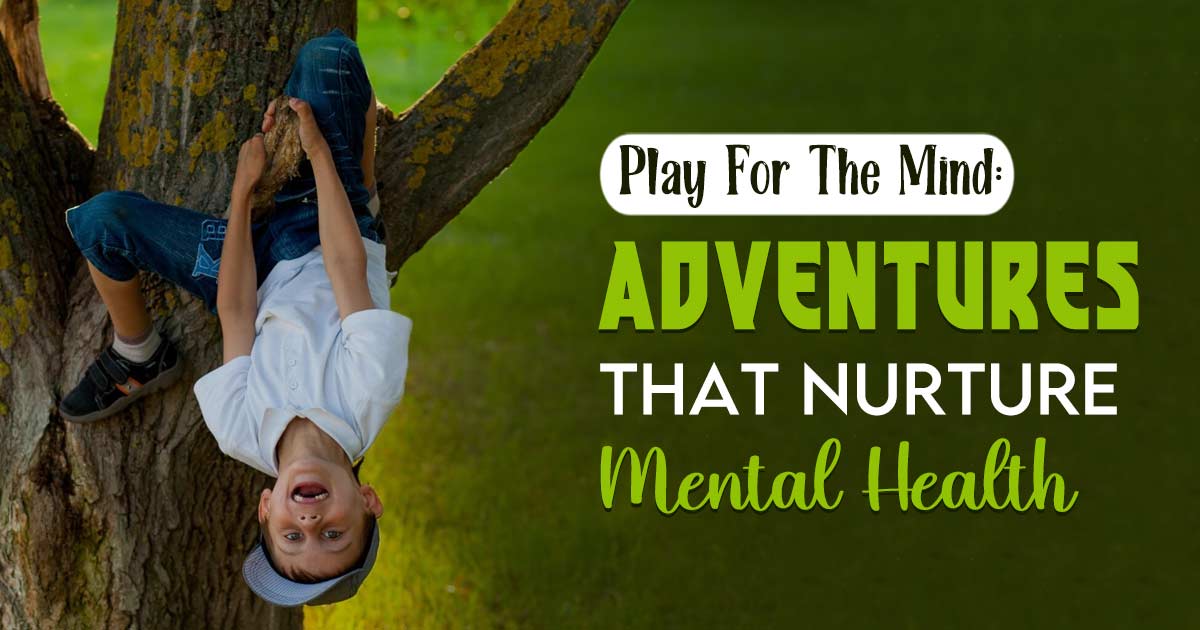Childhood is a time of exploration, discovery, and growth. For generations, children have engaged in adventurous play as a means to develop physical skills, learn about their surroundings, and foster social interactions. However, recent research has shed light on another important aspect of adventurous play – its profound impact on a child’s mental health.
The Nature Of Adventurous Play
Adventurous play encompasses a range of activities that involve elements of risk, challenge, and excitement. These activities may include climbing, treehouse building, exploring natural environments, participating in team sports, and even engaging in imaginative and creative games.
Unlike structured and supervised play, adventurous play often involves a degree of autonomy and decision-making by the child, allowing them to take calculated risks and make choices based on their own judgment.
Adventurous Play And Cognitive Development
Adventurous play contributes significantly to a child’s cognitive development in several ways. Firstly, it enhances problem-solving skills by placing children in situations that demand quick decision-making and obstacle navigation. This challenges their cognitive abilities, promoting critical thinking and problem-solving.
Additionally, adventurous play involving exploration of unfamiliar terrain boosts spatial awareness and understanding of the physical environment, ultimately leading to improved navigational skills—a critical component of cognitive development.
Furthermore, unstructured play in adventurous settings encourages creativity, whether through fort-building, imaginative scenarios, or inventing new game rules. These activities stimulate children’s imagination and foster their problem-solving abilities.
Adventurous Play And Emotional Well-being
Adventurous play also plays a vital role in promoting a child’s emotional well-being. Engaging in these activities can have a calming effect on children, as spending time in nature or participating in physical activities releases endorphins, thereby reducing stress and anxiety levels. Moreover, adventurous play offers children a chance to disconnect from the pressures of academic or extracurricular demands.
Additionally, overcoming challenges and taking risks during adventurous play significantly boosts a child’s self-esteem and self-confidence. Successes such as conquering a challenging rock climb or navigating a difficult trail provide children with a sense of accomplishment that carries over into various aspects of their lives.
Furthermore, adventurous play exposes children to controlled risks, teaching them how to manage fear and anxiety, ultimately contributing to their emotional resilience and ability to cope with adversity and uncertainty in the future.
Adventurous Play And Social Development
Adventurous play fosters social development by enhancing various social skills. Many of these activities involve teamwork and cooperation, whether children are collaborating on building a treehouse or participating in team sports. This engagement teaches children how to communicate effectively, negotiate, and work together with their peers, thereby improving their social skills.
Additionally, through adventurous play, children develop empathy and compassion for others, especially when they face challenges together. Encounters with adversity during these activities encourage mutual support and encouragement among peers, nurturing a sense of empathy crucial for forming healthy social relationships.
Furthermore, adventurous play exposes children to conflicts that may arise, requiring them to find resolutions independently. This experience helps them develop essential conflict resolution skills, which are vital for building and maintaining positive relationships throughout their lives.
The Role Of Technology And Screen Time
In recent years, the increasing prevalence of technology and screen time among children has raised concerns about its impact on their mental health. Excessive screen time has been linked to various mental health issues, including depression, anxiety, and attention deficits. Adventurous play provides a compelling alternative to sedentary screen-based activities.
It is crucial for parents and caregivers to strike a balance between technology use and adventurous play. Encouraging children to spend time outdoors, exploring and engaging in physical activities, can help mitigate the negative effects of excessive screen time.
Adventurous play offers numerous benefits to a child’s mental health, encompassing cognitive, emotional, and social aspects of development. By providing opportunities for children to take risks, explore their surroundings, and engage in unstructured activities, parents and caregivers can help foster resilience, creativity, and emotional well-being in the next generation.
In a world increasingly dominated by screens and structured activities, it is vital to recognize the importance of adventurous play in a child’s overall development. Encouraging and supporting such activities can have a lasting positive impact on a child’s mental health and well-being, helping them grow into confident, resilient, and empathetic individuals.




























